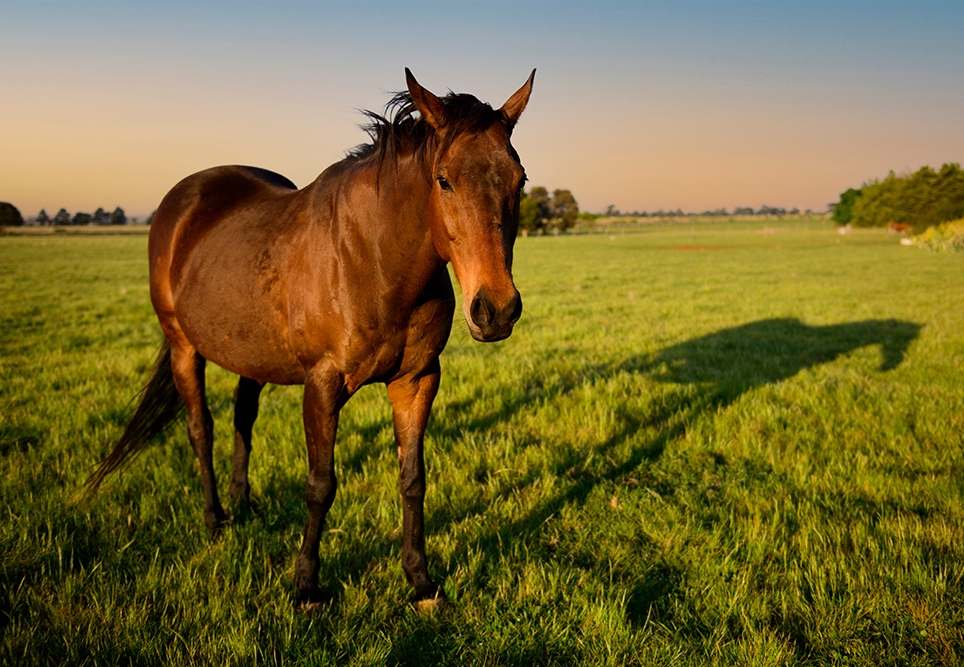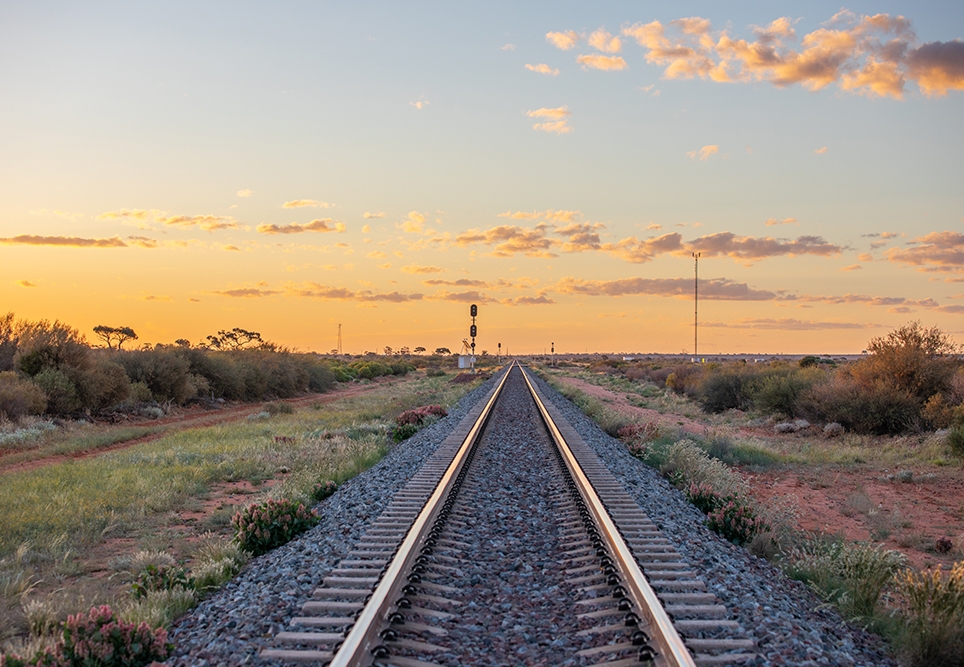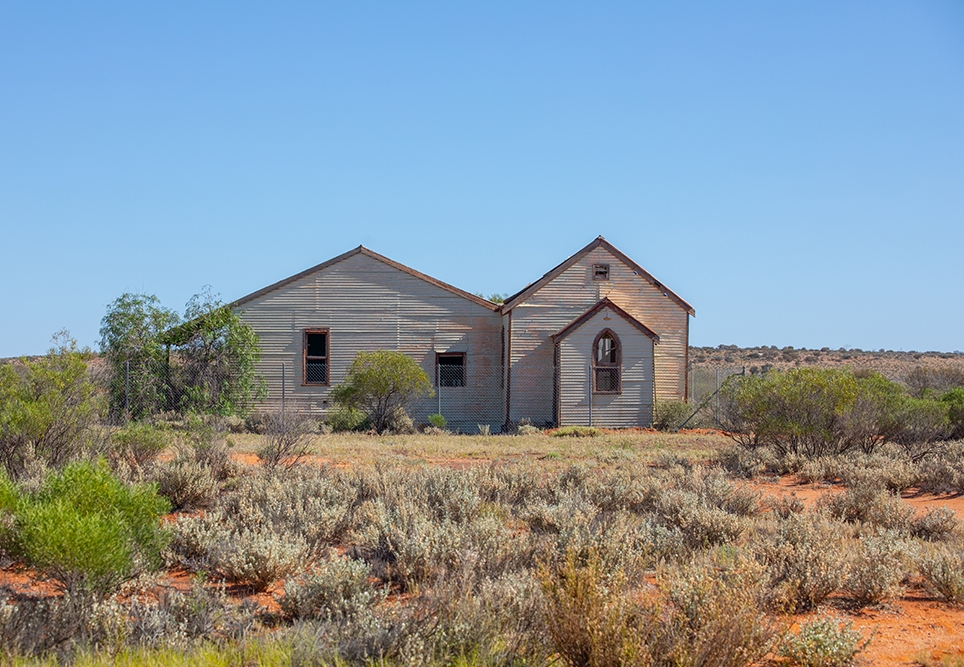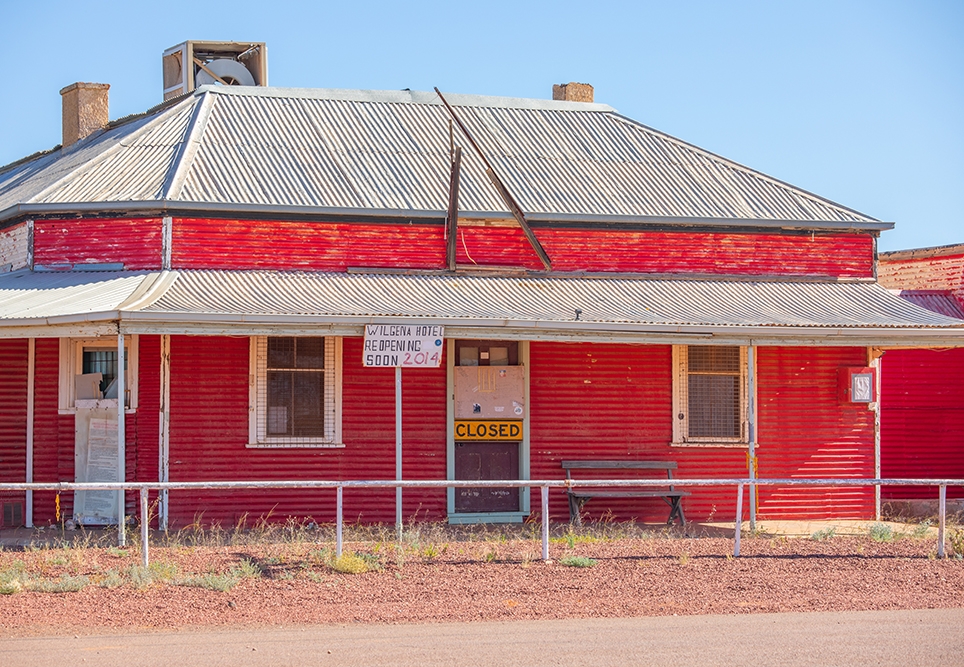This site may not work properly using older versions of Edge and Internet Explorer. You should upgrade your browser to the latest Chrome, Firefox, Edge, Safari, or any other modern browser of your choice. Click here for more information.
Your Stories
This is where we tell your stories, cover topical issues and promote meaningful initiatives.
Remote area nursing: That time I saved a horse’s life
In the 1980s, when a horse suffered a cut to the neck in Tarcoola, SA, new-to-town remote area nurse Ros Jinks performed a successful “backyard surgery” to save its life. Her story evokes the golden years of SA’s railways and the unusual duties RANs were (and still are) called upon to perform.
I was working in the tiny town of Tarcoola in South Australia, population around 150. The year would have been 1982, so a while ago now!
Tarcoola was a railway town specifically to service the Trans Australian Railway line, and trains which went through. They used it to refuel goods trains, inspect trains, and maybe also top up water for passenger trains of Indian Pacific and Ghan.
The town consisted of about 25 or so railway houses (mostly in rows), a school and a few houses for teachers and principal, also a small pub with accommodation (although it did not offer public accommodation while I was there) and a small church. There may have been one or two privately owned houses.
The closest other medical service and hospital was in Port Augusta, about eight hours by train, or just under two hours by plane (no regular service, private planes only), and RFDS would generally taxi up to the back fence of the hospital.
The hospital was more of a clinic servicing mostly the town but also the few surrounding pastoral (sheep) stations on occasions.
With the passenger trains travelling through town, occasionally the nurse was requested to attend to sick passenger/s. The trains didn’t formally stop – no passengers were allowed to disembark unless they were getting on/off there, but went through late at night (at 11:30pm to Alice Springs or 3 – 4am in other directions).
It was supported by the RFDS with medical clinics twice per month or for emergency evacuations (mostly to Port Augusta, although on one occasion a sick child I removed from the Ghan was flown directly to Adelaide) and generally staffed by two RNs.
The days of routine surgery and births in the hospital had long ceased by the time I worked there. The nurses were appointed by the Bush Church Aid Society so there was an expectation that the nurse/s would also have some involvement in running church-related activities, such as Sunday School and Kids Club. The visiting minister attended from Port Augusta reasonably regularly so the nurse/s also facilitated church services in the small church.
Backyards were generous and galvanised iron fences divided the yards. A few of the families had horses and a couple kept one or two in the backyard from time to time. One family had recently acquired a horse from one of the adjoining sheep stations and was attempting to break it in. They were training it with a halter around the head and likely a mouth-bit. I learned this after the event. The discussion was that a horse in the adjoining/nearby yard was calling and this horse put its head over the fence to respond then panicked when it couldn’t lift its head, resulting in a large gash along and under the jaw line.
I remember the situation clearly and that I’d only been there about a week. A car screeched to a halt and the doorbell rang almost simultaneously. I promptly answered the door to see a lady and her son standing there looking concerned but no sign of physical injury or distress. She mumbled something like “I don’t know if you can do anything, but Sister Helen used to” (Helen being the recent previous RN), and “my horse has cut an artery or something in its neck”.
So, I instantly changed into some older clothes, gathered a couple of things (medical equipment) and went with her.
Another man in town had already been called to attend; he was more experienced with horses and he took one look and told them to “go get the sister”. There were about four men in attendance and one had his hand over the gash, slowing down the bleeding. I figured that if I didn’t do anything the horse was going to die so I had nothing to lose!
So – the “surgery”. It was very difficult to access the neck area of the horse to see what I was doing properly so it was decided to get the horse on the ground. I think by this stage I had managed to successfully locate the lacerated artery and clamp off the bleeding (by almost blindly poking artery forceps into the wound) so it was a matter of over-sewing said blood vessel and sewing the wound.
A large tarp had been obtained and a light on a very long extension cord from the house, as it was quite dark by this time. The men managed to pull the horse down to the ground and sat on her while I did my ‘surgery’. After the suturing was completed the men allowed the horse to stand again. She was given a course of intramuscular antibiotic and lived to tell the tale.
Sadly, it was some weeks later that she managed to break a leg (knocked on a water trough) and had to be euthanised. (I was on a short break home in Sydney at the time so received a phone call after the event. If I was there maybe I would have tried to plaster it?)
I also spent some time further along the line in Cook – which is similarly situated midway between Port Augusta and Kalgoorlie, but there’s no pastoral stations in the middle of the Nullarbor Plain. It had about 20 houses all in a row with a school set back and a couple of teachers’ houses nearby, and was a three-hour flight from Port Augusta, overnight on the train, with twice monthly clinics from RFDS.
Concrete sleepers were progressing so the small siding towns of three to four houses were being dispensed with less maintenance required on tracks, but those adjacent to Cook were still
in place, so medical care was extended to the small populations (about three houses) in those places as well as (train) travellers.
Few people visited the towns by car apart from visiting tradespeople for things like Telecom, as most people arrived by train. With advances in technology, there was no longer a requirement for permanent Telecom workers.
One of their jobs was to do weather observations and report to the Bureau of Meteorology three hourly around the clock except for midnight. This job was absorbed by the hospital “Sisters” (RNs).
Because the Indian Pacific train stopped for about a half hour for refuelling and watering, and also crew change (WA/SA), at respectable times (8am and 7pm local SA time), a souvenir shop was established and operated from a small caravan adjacent to the train station. Money raised helped support the town, hospital and RFDS, so of course it was another community job for the hospital staff to be involved with. The town is now mostly gone but remains an important refuel and crew change stop so only a couple live there on a permanent basis.
Hope that gives a bit of insight into working as a RAN in the past days of railway towns in South Australia. Some of the nurses also got involved with veterinary care on a slightly more formal basis, attending to sterilisation of cats (and dogs?) on occasions. I recall the occasional veterinary work on injured/sick animals during my time there, as the closest vet was of course in Port Augusta.
Read more from CRANAplus Members Ms M Press and Ms R Caine in this article on Converse Culture Shock – Unaccustomed to the familiar.



